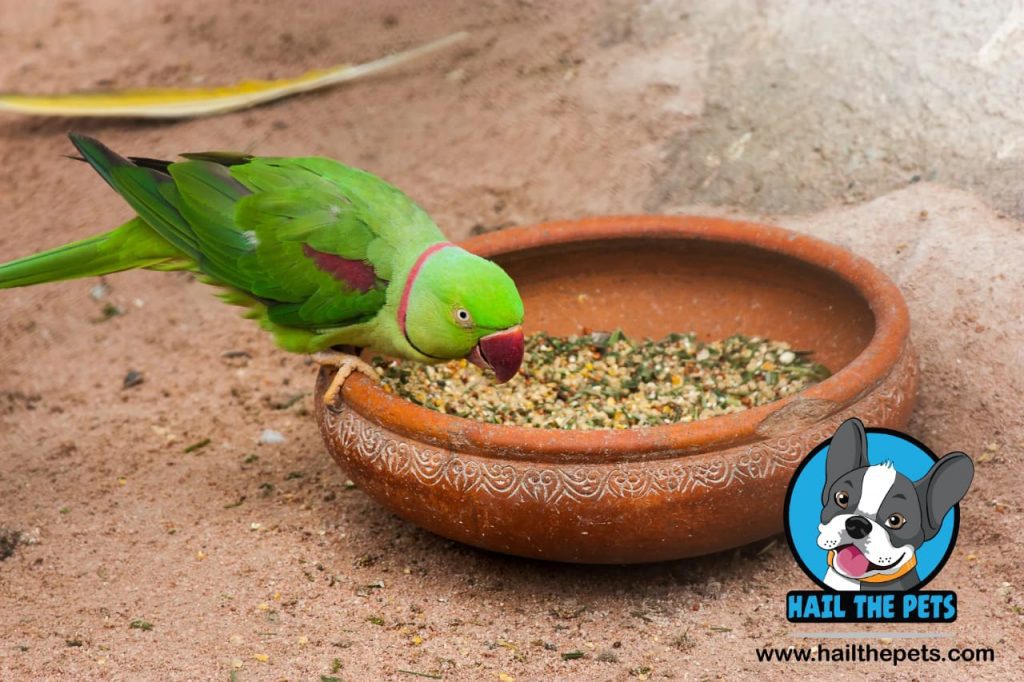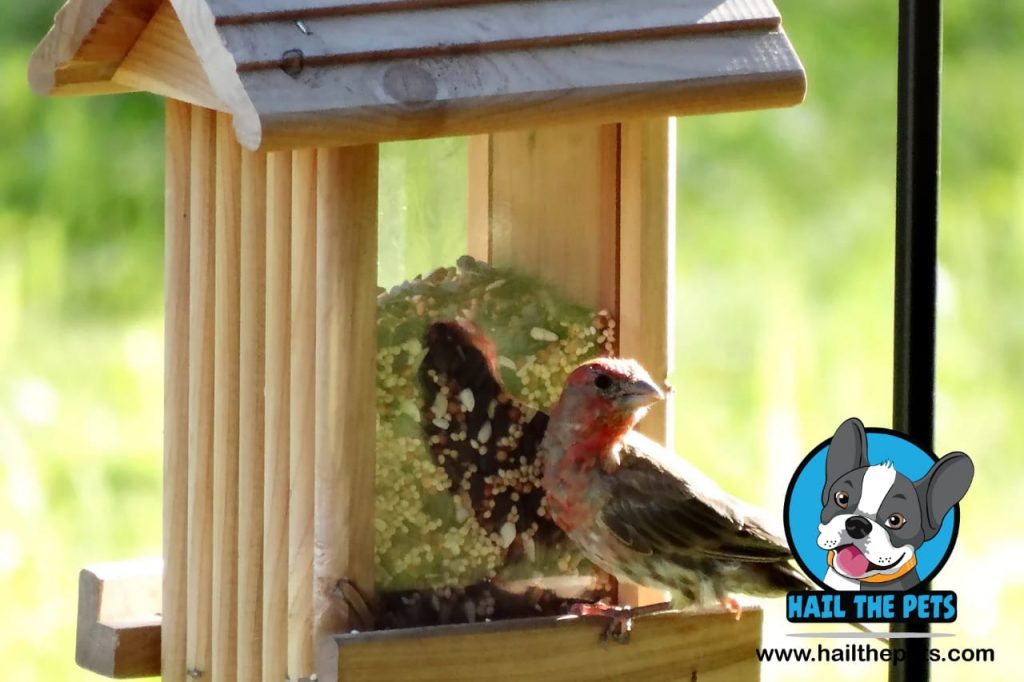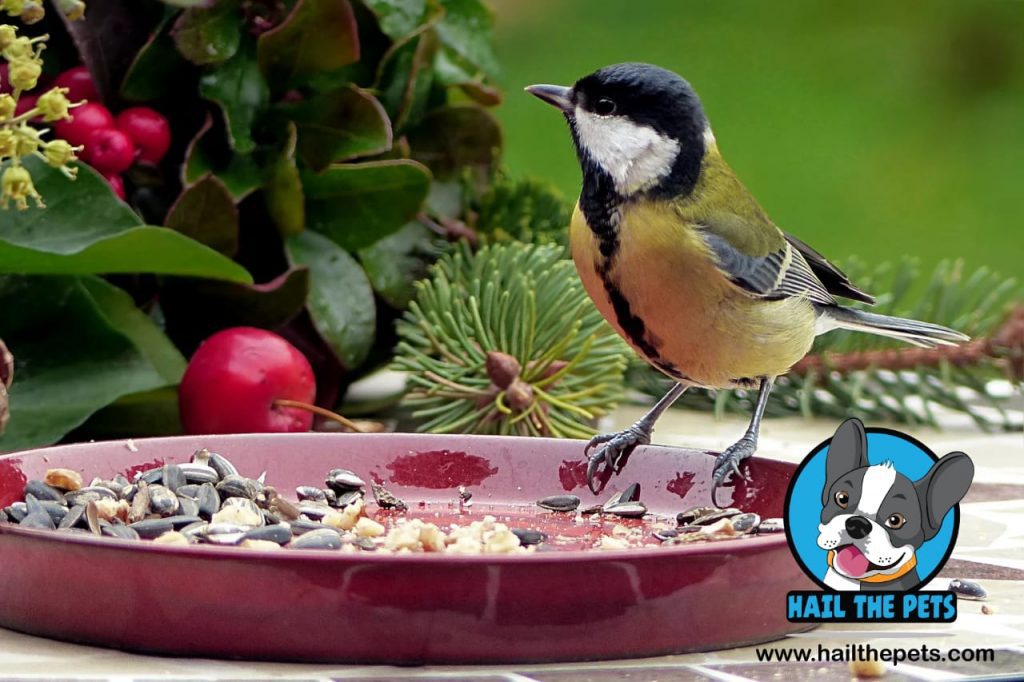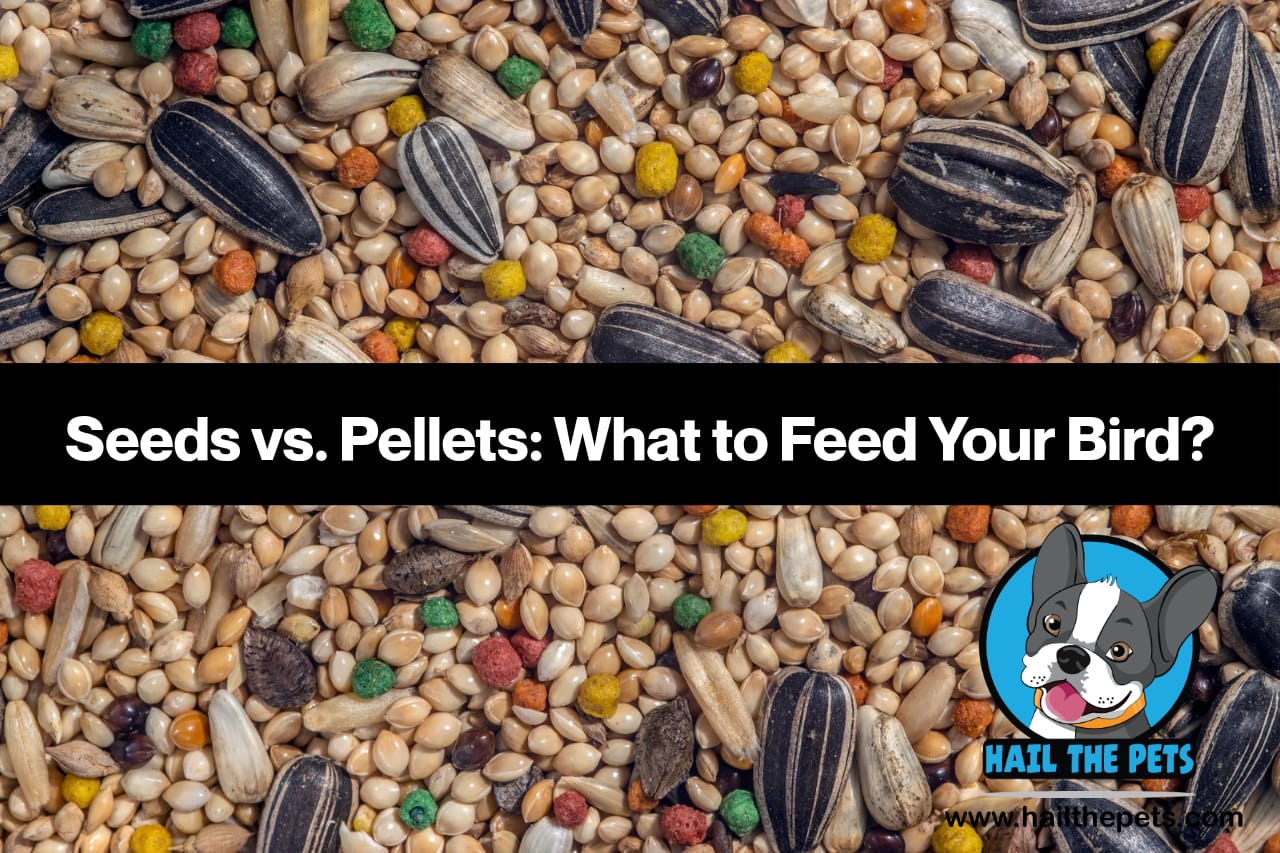When it comes to keeping pet birds healthy, one of the most common questions bird owners face is: should you feed your bird seeds or pellets? It is a question that frequently occupies a bird enthusiast, and there do not seem to be obvious solutions. Like every living creature, birds also need proper foods to consume to live healthy but their menu is rather strict.
While some species need more of a certain type of food and less of the other, some need a combination of both. How do you know that the given option is the best one given that there are so many products to choose from and there’s always so much advice flying around that confuses things further?
Read more: 10 Best Birds for Apartment Living
In this blog, we will take a look at both the seeds vs pellets and a little of what makes each one great. If you are a beginner who has recently got a bird or an experienced bird owner planning to change your bird’s diet, this article will provide you with valuable information on what to choose.

The Importance of Nutrition for Your Bird
Birds, like any other pets’ need on balanced diet for good health. But unlike other animals, they are a little more complicated in terms of their diet. Short and imbalanced diets can cause many diseases such as obesity, malnutrition and death amongst other diseases. For pet birds, it is also important to ascertain their feeding habits whether or not they’re taking sufficient feeds and taking the right feeds as well.
This is important to make sure that you feed your bird properly; the immune system, feather quality and the general health of your bird depend on diet. Even such a favourite pet as a bird can get sick if you do not adhere to the principles of a healthy diet.
Have a look at: A Complete Guide on Lovebirds
The greatest challenge that the owners of pet birds experience is trying to identify what the given bird will eat without becoming bored and uninterested in subsequently rejecting it. This means that no matter if you opt for feeding them seeds or pellets, you want to provide your bird with the nutrients they need to properly feed their body all the necessary stuff to be able to live an active life.
Understanding the Seeds vs Pellets Debate
Deciding whether to feed your pet bird with seeds or pellets is one of the most critical decisions every pet bird owner will ever have to make. Each type of food also has its advantages and dis-advantages for your pet bird and what may be suitable may greatly depend on the species, age and physical con-dition of your pet bird. Let’s explore the distinctions between seeds and pellets.
Check out: Discovering Birds with Red Heads: 5 Breeds to Know
The Role of Pellet Bird Food
Are Seeds Good for Pet Birds? Many a bird owner first start their avian companions with birds and seeds because it is usually more convenient for them. The birds do fancy them, and they are easily found.
But seeds are not the healthiest diet for your pet bird though they are a better source of nutrients compared to most commercial foods. They have some vitamin and mineral content but are a rich source of fat and carbohydrates, which results in obesity, liver diseases and many other illnesses when given as the sole diet.
Seeds lack many nutrients that birds require such as protein, calcium, and vitamin-A. These deficiencies can result in bone disease and weaken the immune systems of the patients – amongst other diseases.
Read more: Do Birds Eat Butterflies? An Insight into Nature’s Food Chain
While in the wild, birds feed on almost everything, seeds alone cannot supply those variations to their diet. Seeds can be offered occasionally to small birds such as the budgies though it is recommended in small amounts. However, seed-fed birds for instance macaws, African Grey Parrots and cockatoos are highly prone to malnutrition.
So the general message from here is that while seed feeding is okay, it should not be the sole feeding method for your bird. They need to have different healthy foods often and in the right proportions to help them lead a healthy life.
Signs that your bird may be malnourished from a seed-only diet include:
- Weight loss
- Dull feather colour
- Lethargy
- Protruding keel bone
- Unhealthy droppings
This can also lead to a lot of stress for the bird and also the owner but fortunately, all these are expected diseases that can be prevented by adopting a healthier diet for the bird.
Have a look at: What to Feed Your Bird
The Role of Pellet Bird Food
Unlike seeds, pellet bird food is a compound feed which adheres to the complete nutrition requirement. It has vitamins and minerals plus the right fats and proteins which are combined to make sure your bird gets a balanced diet. The pellets are available in different sizes and therefore they can be used for all birds no matter the size if from budgie to parrot.
When you feed your bird pellet bird food you don’t have to ever worry about whether or not you are feeding your bird a proper diet. By contrast to seeds, pellets are produced in such a way that there is certainty that your n bird will get all the vitamin and mineral it requires. The High-quality pellets can contain the corn, soybeans vegetables, fruits and are not contaminated by artificial additives and unhealthy preservatives.
Know more about: Mystery Unravelled: 5 Black and White Birds with Mysterious Feathers and Behavior
However, although pellets are are a complete diet, certain birds are selective with what they eat. Most pet birds also have a negative perception of bird pellets since they have broken from the seed’s texture and taste. This makes it challenging to switch birds to a pellet diet but any change can be managed with a lot of push and persistence.
Seeds vs Pellets: Nutritional Comparison
- Seeds: Seeds are rich in fats and carbs but poor in vitamins and minerals that are important for birds’ health like calcium, Vitamin A and so on. Seeds also proved to be lacking the fibres and the diversity in the food that is needed for a healthy diet. Furthermore, the quality of seeds in commercial seed mixes leaves a lot to be desired, and most of them are filled with artificial colours or other similar unhealthy adjuvants.
- Pellets: In contrast, pellet bird food is a type of bird food that can be packed with a range of healthy foods such as fruits, vegetables and grains. These pellets are carefully designed and produce a balanced diet that will help your bird stay healthy. That’s why pellets contain most of the benefits that whole food ground down to form pellets have while having the convenience of being a more uniform food source that birds would naturally find in the wild.
Check out: Exploring Unusual Bird Behaviour: Top Ten Popular Birds to Keep as Pets
However one of the biggest benefits of using pellet bird foods is that they contain the stabilized nutrition that is absent in seed-only diets and other forms of bird foods, where certain nutrients are often lacking. In addition, being nutritionally complete, pellets do not pose a threat of obesity and fatty liver disease that characterize diets with high contents of fats or carbohydrates.

Transitioning to Pellet Bird Food
Transitioning from seeds to pellets is a tricky affair with your bird. Even though it is dry and plain some bird immediately accepts the bird pellets and others may reject it for a long time. But this resistance is often centred on the bird’s instincts. Breeding birds take time to eat new foods as they are always careful when they have not tasted or felt the new food before.
It is necessary to be patient during such a period of shift to another style of further training. Avian species are very fussy when it comes to diet issues; therefore sudden change of diet may cause so much stress that the bird may end up starving itself to death.
Know more about: Pet Adoption vs. Buying a Pet: What You Need to Know to Make the Best Choice
Begin with a little incorporation of the pellets within the feed and also slowly improve the ratio of the pellets subsequently. It is important to make sure your bird is eating properly during this process so it doesn’t starve.
Here are a few tips to help your bird make the transition:
- Gradual Introduction: Begin with incorporating as few pellets as possible into its normal diet which is seeds. Most gradually add a little more of the pellet portion and a little less of the seed portion. This makes your bird familiar with the new food without overloading it with drastic changes in diet.
- Peer Influence: If you are maintaining more than one bird, you should allow them to watch each other as they take their pellets. I have observed that birds like to follow the behaviour of their counterparts, and observing another bird take pellets is likely to force them to take it too.
- Patience is Key: One last note: It’s not going to change overnight. It should take several weeks, or probably months for the bird to accept the pellets, therefore one should not relax on feeding the bird with pellets.
Check out: Top 10 Pet Bird Species for Beginners: Easy to Care for and Friendly
As for the new food doesn’t take time for the bird to accept, he or she would start taking it as when he or she was fed.
How to Create a Balanced Bird Diet
Although many pellet bird foods should be the largest portion of the diet for your pet bird, variety is great. As with the wild birds, there are varieties of foods that birds will require for them to be healthy.
Additionally, to bird pellets, Many recommend adding fresh fruits, fresh vegetables and seeds in limited quantities. Other bird owners also create “chop” which is vegetables, fruits, and grains that can just be made in large batches and stored in the freezer until ready for use.
Learn more: A Complete Guide on Lovebirds
By having different types of foods not only can you ensure that you are providing your bird with all necessary nutrients as a part of his diet but also try to give him/her different meals so that your bird does not get bored with meals. Even birds get bored of eating the same food all the time so to make feeding more interesting, variety must be introduced and incorporated, including pellets, fresh foods and rarely seeds.
Here’s an ideal breakdown for a balanced bird diet:
- 60–70% Pellets: This should be the staple diet, which offers your bird all the Vitamin and mineral requirements he needs.
- 20–30% Fresh Foods: Ensure that you bring a change of fruits and vegetables to avoid monotony while ensuring you bring fibrous foods.
- Up to 10% Seeds: Seeds may be given occasionally in the form of tidbits, but they should not form the main diet of the birds.
Check out: Discovering Birds with Red Heads: 5 Breeds to Know
Proper feeding habits therefore increase your bird’s longevity as will be seen in the tips below.

Common Pitfalls to Avoid
When deciding between seeds vs pellets, there are a few common mistakes that bird owners should avoid:
- Over-reliance on Seeds: Seeds are natural, but if all your bird gets is seeds, he or she will be lacking essential nutrients. They contain large proportions of fats and small quantities of vitamins, and minerals that will cause long-term health complications. They should also be fed with different food stuff and include bird pellets so that the food may be balanced.
- Forgetting Fresh Food: Pellets alone aren’t enough. Your bird requires fresh food like fresh vegetables like greens, carrots and berries to support digestion. The fresh fruits and vegetables assist in replenishing water-soluble vitamins that the pellets never supply.
- Ignoring Individual Needs: Every bird is different. Certain bird species may need pointedly different nutrients depending on the breed, age or current state of their health. It is advised always to seek the veterinary’s advice on a diet that can be given to the bird for better nutrition value.
Read more: A Complete Guide on Lovebirds
Conclusion
So, should you feed your bird seeds or pellets? It is not easy to pinpoint the answer but again the best diet normally consists of both. It is very recommended that most of your bird’s feed comes from pellet bird feed to enable it to get a balanced diet. But seeds can be a good snack or even a treat when given occasionally.
Finally, a daily diet of bird pellets, vegetables and fruits, and occasionally seeds will make your bird live a longer, happier life. The following is a guide to some ways that you can give your feathered friend the best care that has to do with nutrition.
Just as a reminder, always seek advice from a veterinarian in coming up with the right feeding plan for the bird. And that is how, with the correct feeding pattern, you will be in a good position to assist your bird to improve!
